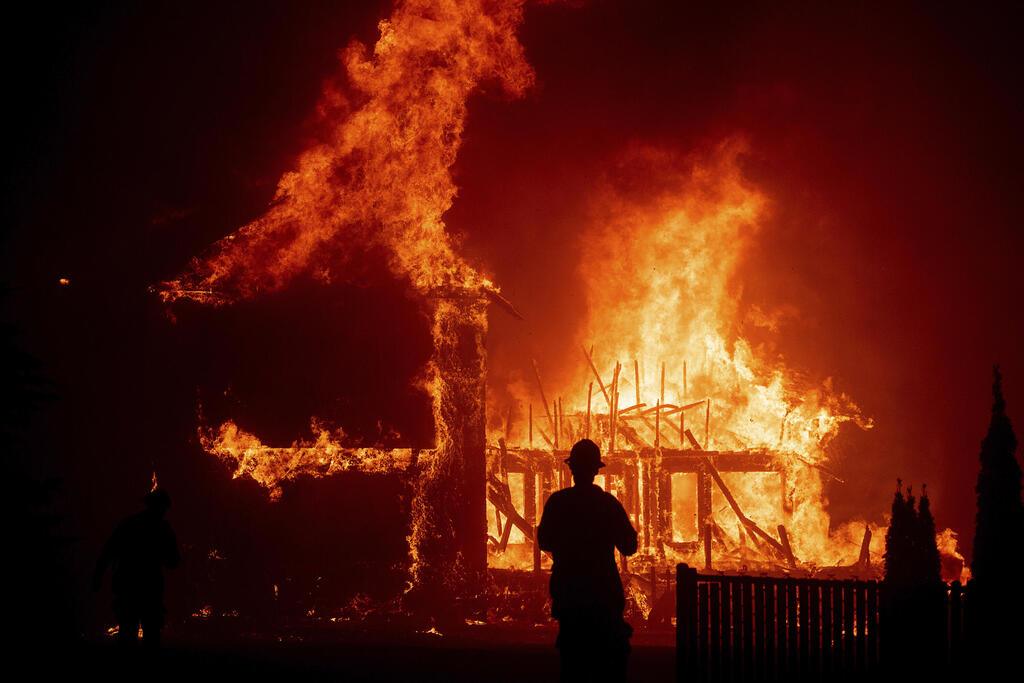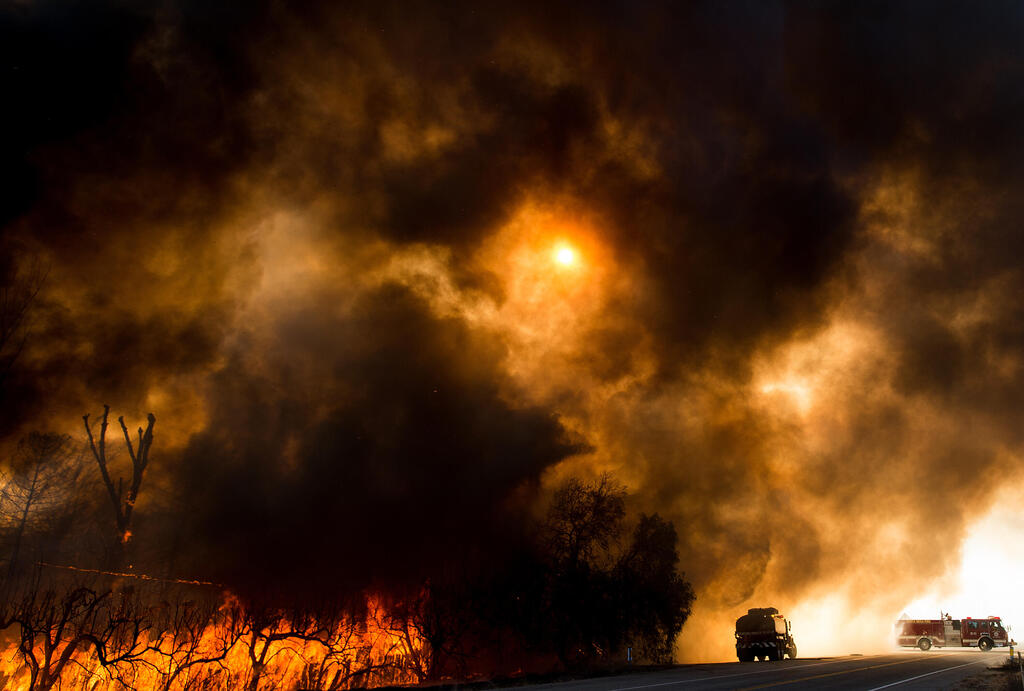Climate change, which is affecting the entire world, has a variety of destructive effects on the Earth. One of these impacts is evident in the increasing risk of forest fires spreading rapidly. Recent expectations warn that the frequency of wildfires, similar to those seen in Canada, Greece, and Hawaii, will continue to increase if no action is taken to reduce greenhouse gas emissions.
More stories:
Scientists at the Breakthrough Institute in Oakland, California, a non-profit environmental research center, discovered that anthropogenic climate change - in the context of rising temperatures - has increased the frequency of severe wildfires by an average of 25% compared to the pre-industrial era. The study’s findings were published in the Nature Journal.
The researchers used machine learning to analyze a series of wildfires that occurred from 2003 to 2020, to examine the link between higher average temperatures, drought conditions, and the most rapidly spreading wildfires - those burning more than 40,000 hectares per day.
They found that the risk of extreme wildfires could increase on average by 59% by the end of the century in a scenario of low greenhouse gas emissions, limiting global warming to 1.8 degrees Celsius above pre-industrial levels, and up to 172% in a high emissions scenario, mainly driven by carbon dioxide and methane emissions.
Using data from documented wildfires, researchers measured the risk of a specific fire spreading out of control. They then used computer models to calculate how much the post-industrial temperature rise increased this risk.
The study examined variables like topography, wind, and absolute humidity (the mass of water vapor present in a given volume of air or other gas), with the researchers cautioning that these changes might exacerbate the risk even more than global warming.
For example, California has experienced a series of severe wildfires in recent years. In 2020, fires led to the deaths of more than 30 people and burned an area of over 16 million acres, involving several wildfires that together constituted one of the largest wildfires the western United States had ever seen. Two years prior, a wave of similar fires hit California, resulting in significant loss of property and life.
The study tracked events that occurred in the summer of 2023, including wildfires that led to at least 115 deaths in Hawaii, the destruction of at least 200,000 homes in Canada, and an ongoing battle with what the European Union has defined as the largest wildfire ever recorded in the EU, which spread over an immense area and claimed the lives of 20 people.
The UN's environmental plan also addresses this issue. A report published last year on forest fires and their consequences noted that such fires are becoming increasingly common due to environmentally warmer and drier conditions resulting from climate change, even in areas that did not previously experience such conditions.
Dr. Patrick Brown, one of the study's authors, said that insights regarding dry conditions can help in dealing with destructive wildfires and serve as preventive measures. For example, by identifying the best places for thinning vegetation and using controlled burning to reduce the natural dry matter that fuels fires.
"We are finding that under most conditions, the impact of hazardous fuel reductions can completely negate the impact of climate change," he said. “It is plausible to have a future of much less wildfire danger despite climate change if we conduct these fuel treatments at scale."
Dr. Brown added that the findings could also inform of precautions regarding power lines and indicate where monitoring and awareness campaigns should be focused, and firefighting resources deployed. Other wildfire experts said awareness of fire risks will become increasingly important for authorities and even holidaymakers.
In a separate briefing by wildfire specialists on Wednesday not related to the study, Andrew Sullivan of Australia's national science agency CSIRO said expenditure was typically "skewed" towards responding to wildfires with not enough money allocated for preventing them. He said there was a "global need to rebalance expenditure to improve risk mitigation" measures such as managing vegetation and fire-danger forecasting.




